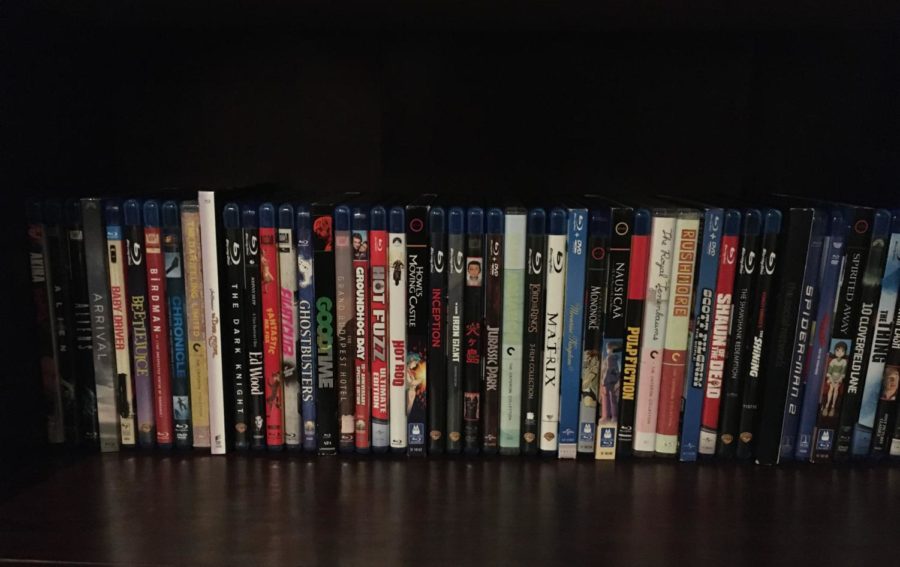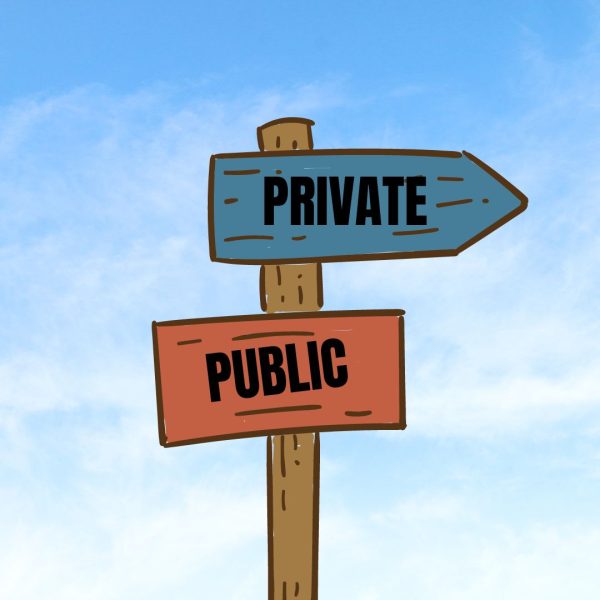Let’s Get Physical
The importance of physical media
My personal collection. I have bought myself around 50 movies, a lot of them you can get cheap if you buy used.
November 21, 2019
With how prevalent streaming has become in the last couple of years, the notion that physical media has become obsolete is more and more commonplace. The idea that people should go out of their way to buy more things to take up space in their house when they seem to have a whole library of entertainment through the internet is now the exception, rather than the rule. In my experience, however, owning physical media over digital is far more fulfilling in the long run. It turns the entertainment you enjoy into something much more personal; not your entire personality, necessarily, but definitely a small part of what makes you unique.
The main edge that physical media holds over streaming is video and audio quality. Due to the fact that streamed media is dependant on your internet connection, quality can drop significantly if your bandwidth isn’t high enough. If you’re interested in watching a movie in the highest visual quality possible, you’re probably not going to get it out of streaming. I have bought and watched nearly 50 movies on Blu-ray, and I can safely say that almost all of them were far better than anything streamed. A lot of the Blu-rays I have bought have been pretty cheap, too. Although they can be pricey when they first come out, physical media tends to lower in price pretty quickly, while the paywall for most streaming services tend to go up as they grow in popularity.
Another thing that keeps streaming from being better than physical, for me, is that streaming is built on the idea of partial ownership. Whenever you pay for a subscription to Netflix, Spotify or any other service of that nature, you don’t actually own any of the content. The services don’t own the content, but instead operate on licencing. I gave a pretty detailed description of content licensing in my past article examining streaming services, so for the sake of levity I’ll just link it here so you can read it. Because of how licencing works, there’s nothing stopping companies from taking off content they don’t see as profitable off of their services. When you buy physical, as long as you take good care of the things you get, you will have them forever. You can rewatch the movie as much as you like, and in my experience you can get a lot out of some movies from multiple viewings.
The last thing that sets physical media apart from streaming is something not a lot of people think about, but is a great asset for learning about the movies you like; special features. Blu-rays seem a little expensive to a lot of people, but you aren’t not just paying for the movie. You’re paying for director’s commentary, behind the scenes, outtakes, and all the nitty-gritty details about a movie that make you feel a closer connection to it. Things like how The Shawshank Redemption (1993) was a flop in the theaters, but found massive success in home-video and DVD releases. Or that one of the most expensive things filmed in Hot Fuzz (2007) was a static shot of a shelf full of action-movie DVDs. Streaming only offers a bare minimum of information as to who is responsible for crafting the art that you love, and as a result movies become far less intimate pieces of entertainment.
If you have a desire to be more involved in watching movies, I would not recommend streaming as an avenue to do that. Even if you only have one or two movies on physical, you are doing yourself a huge favor. If you do prefer streaming, there’s nothing wrong with that, but just know there’s a whole world of unused potential just out of reach.


















